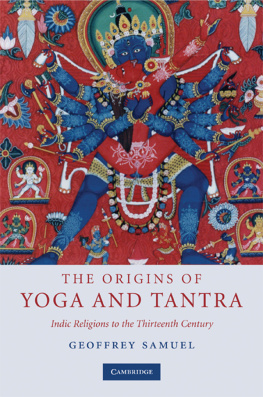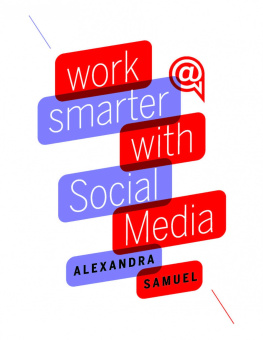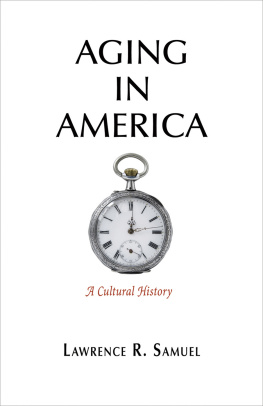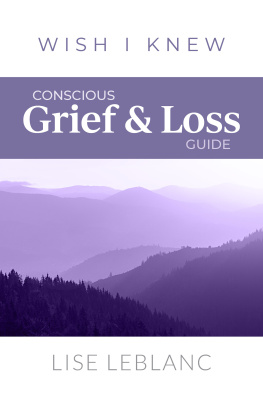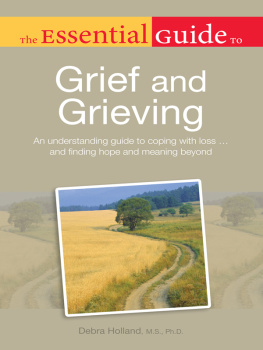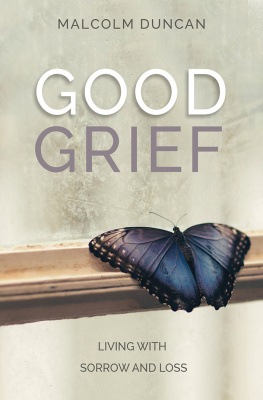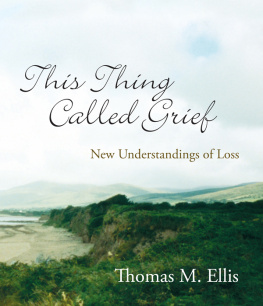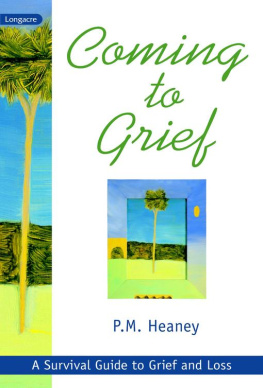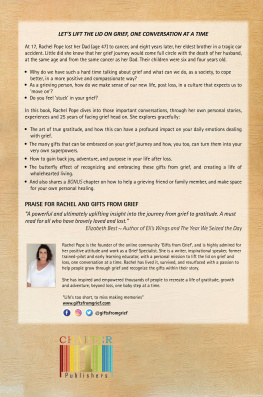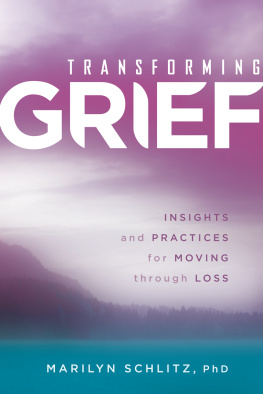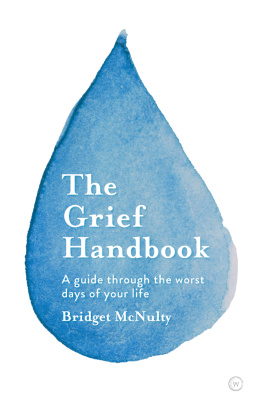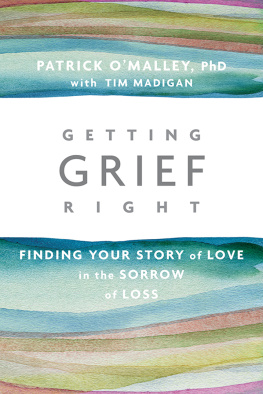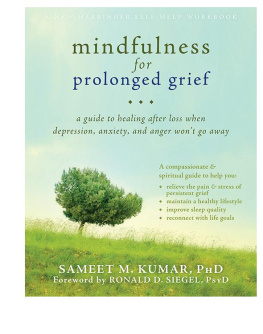Julia Samuel
Grief Works
Stories of Life, Death and Surviving
PENGUIN LIFE
UK | USA | Canada | Ireland | Australia
India | New Zealand | South Africa
Penguin Life is part of the Penguin Random House group of companies whose addresses can be found at global.penguinrandomhouse.com
First published 2017
Copyright Julia Samuel, 2017
The moral right of the author has been asserted
Cover flower artwork by Hugo Guinness
ISBN: 978-0-241-27075-2
This book is dedicated to
Michael,
Natasha, Emily, Sophie and Benjamin
With all my love always
There is no love without pain; but only love can heal that pain which it causes
Father Julio Lancelotti
Introduction
Annie, the first person I ever counselled, lived in London at the top of a high-rise block of flats, behind the Harrow Road. She was in her late sixties and had been devastated by the death of her daughter, Tracey, whod crashed her car into a lorry on Christmas Eve. The cigarette smoke and boiling heat of Annies room, with its three-bar electric fire, combined with her furious grief, are as alive in me today as they were twenty-five years ago. At that time I was a volunteer for a local bereavement service, and Id had only ten evenings of training before I found myself sitting opposite Annie. I felt inadequate and frightened in the face of her loss; but I also felt a quiet hum of excitement, for I knew I had discovered the job that I wanted to do for the rest of my life.
Annie gave me an insight that has proved true for the many hundreds of people Ive seen since: that we need to respect and understand the process of grief, and acknowledge its necessity. It isnt something that can be overcome by engaging in battle, as in the medical model of recovery. As humans, we naturally try to avoid suffering, but, contrary to all our instincts, to heal our grief we need to allow ourselves to feel the pain; we need to find ways to support ourselves in it, for it cannot be escaped. Annie railed against the truth of her daughters death, blocking it out with bouts of drinking, and fighting with her family and friends who tried to pull her out of her loss. This pain was the very thing that eventually forced her to find a way of living with the reality of her beloved daughters death and it had a course of its own.
Death is the last great taboo; and the consequence of death, grief, is profoundly misunderstood. We seem happy to talk about sex or failure, or to expose our deepest vulnerabilities, but on death we are silent. It is so frightening, even alien, for many of us that we cannot find the words to voice it. This silence leads to an ignorance that can prevent us from responding to grief both in others and in ourselves. We prefer it when the bereaved dont show their distress, and we say how amazing they are by being so strong. But, despite the language we use to try to deny death euphemisms such as passed over, lost, gone to a better place the harsh truth is that, as a society, we are ill equipped to deal with it. The lack of control and powerlessness that we are forced to contend with go against our twenty-first-century belief that medical technology can fix us; or, if it cant, that sufficient quantities of determination can.
Every day thousands of people die, expectedly and unexpectedly; 500,000 deaths a year occur in England alone. On average, every death affects at least five people, which means that millions of people will be hit by the shock of the news. They will forever remember where they were when they heard that their parent, or sibling, or friend, or child was dying or had died. It will impact on every aspect of their world for the rest of their lives and ultimately alter their relationship with themselves. How successfully they manage their grief will, in turn, come to touch all the family and friends around them.
The pain we feel is invisible, an unseen wound that is greater or smaller depending on how much we loved the person who has died. It may be that we are grieving a sudden death or an anticipated death. Either way, the sky we look up at is the same sky as before the death, but when we look in the mirror the person we see has changed. We look at a photograph of ourselves, and wonder at the innocence of that smile. Death is the great exposer: it forces hidden fault lines and submerged secrets into the open, and reveals to us how crucial those closest to us have been. But those surrounding us dont necessarily understand the complexity of what has happened or the depth of the injury we are carrying.
I have regularly seen that it is not the pain of grief that damages individuals like Annie, and even whole families, sometimes for generations, but the things they do to avoid that pain. Dealing with pain requires work on many different levels, both physical and psychological. It is not possible to do this work on our own. Love from others is key in helping us to survive the love we have lost. With their support, we can endeavour to find a way of bearing the pain and going on without the person who has died daring to go forward to trust in life again.
In my profession there is a wealth of well-researched practical strategies as well as psychological understandings that are essential for anyone who is grieving. As a therapist I have witnessed how this knowledge can help the bereaved to avoid worse consequences through inappropriate support; research studies show that unresolved grief is at the root of 15 per cent of psychiatric referrals. The fear that surrounds death and grief is largely caused by lack of knowledge, and the aim of this book is to address this fear and to replace it with confidence. I want people to understand that grief is a process that has to be worked through and experience has taught me that grief is work, extremely hard work; but, if we do the work, it can work for us by enabling us to heal. The natural process of grieving can be supported in such a way as to allow us to function effectively in our daily lives, and I hope that this book will come to play a useful role in providing this support.
Here you will find case studies of grief based on real peoples experience. Although they have been grouped according to the relationship of the individual with the person who has died (i.e., the loss of a partner, parent, sibling or child), each is, nonetheless, unique. These stories demonstrate that we need to become more familiar with what is going on inside us; we must learn to recognize our feelings and motivations, and genuinely get to know ourselves. This is necessary if we are to adjust to the new reality brought about by loss. Grief doesnt hit us in tidy phases and stages, nor is it something that we forget and move on from; it is an individual process that has a momentum of its own, and the work involves finding ways of coping with our fear and pain, and also adjusting to this new version of ourselves, our new normal. That most people can somehow find a way to bear the unbearable says much about our extraordinary capacity to evolve as we work towards the rebuilding of our lives.
Although the case studies in this book are framed by my counselling relationship with each individual, the focus is, however, on the grief rather than on the therapy; and they show that really listening to someone is just as important as talking with them the power of a person being fully heard as they tell their story should never be underestimated. The ability to listen well is by no means the sole preserve of professional therapists; it is something we can all learn to do, and we may be surprised by how much our friends tell us and how helpful we can be when we take the time to listen to them properly.


